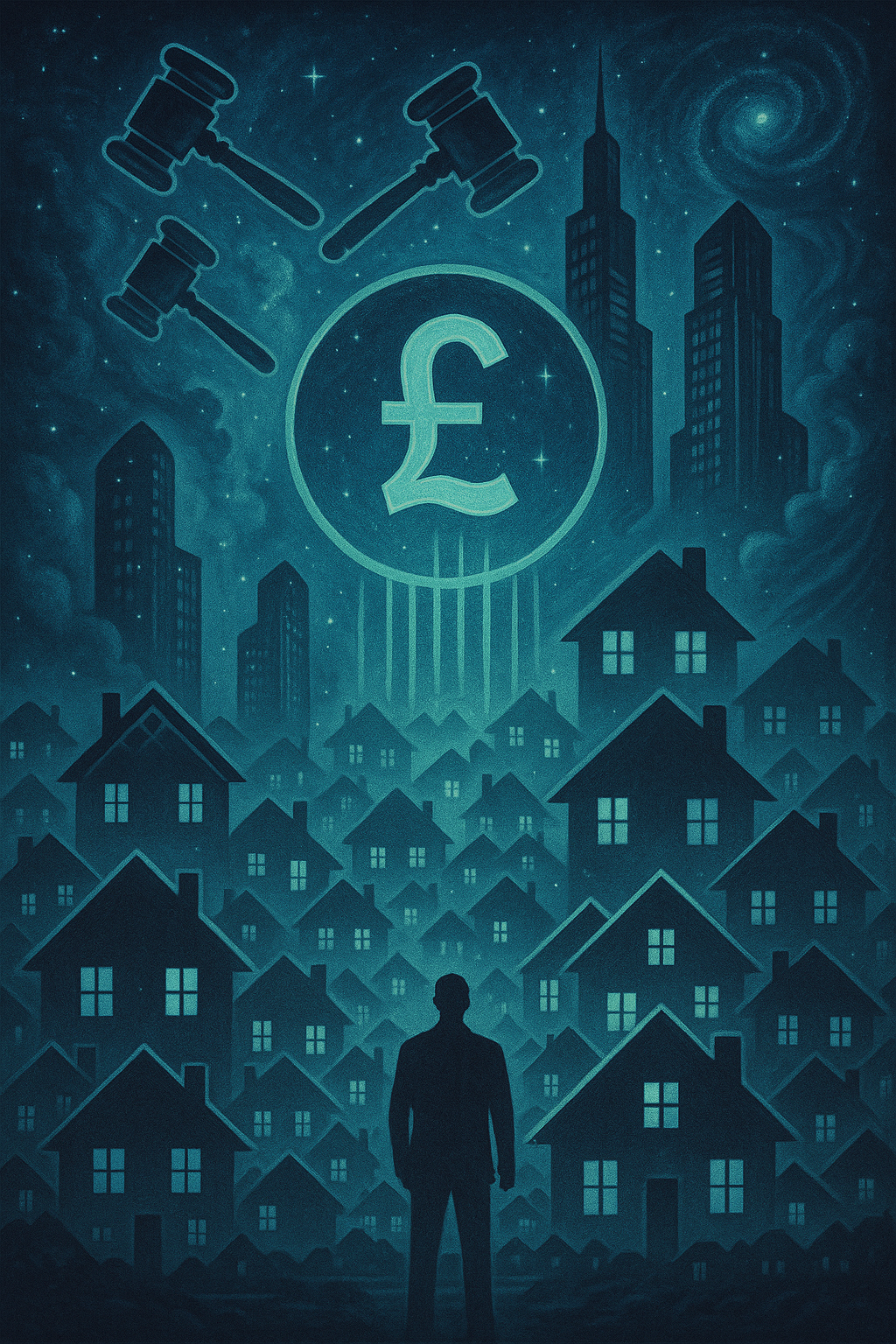Popular articles
In an era where personal freedoms are continually eroded under the guise of collective governance, the concept of "Individual Security" emerges as a principle of paramount importance. The term, as redefined here, does not merely refer to one's right to protection from violence or external threats—it is the fundamental assertion that a person has the right to defend themselves in every aspect of life, including economically. It is a rejection of overreaching bureaucratic control, a challenge to the notion that distant rulers have the right to dictate the financial and personal well-being of individuals, and a direct assertion that the ability to earn a living, free from undue restriction, is not a privilege but a natural right.
The Right to Personal and Economic Self-Defense: Ownership of One’s Fate
Self-defense is a right so fundamental that no moral society can function without it. But this right does not stop at the barrel of a gun or the swing of a fist—it extends into economics, property, and livelihood. Just as an individual has the right to repel a physical attack, they have the right to resist economic predation, whether that be from corporate monopolies enabled by corrupt laws, exploitative taxation, or bureaucratic restrictions on enterprise.
We live under a system where governments claim the authority to seize a portion of your income before you even lay hands on it. This is not mere administration—it is economic coercion. It is the modern equivalent of a feudal lord taking his cut of the serf’s harvest before the farmer has even eaten. A person who cannot defend their economic interests is no freer than a man shackled by chains, no matter how gilded those chains may be.
To declare the right to self-defense in economic terms is to say that no individual should be forced into economic servitude by policies that strip them of autonomy. Inflation, excessive taxation, and regulatory strangulation are all forms of aggression against the individual. They do not differ in essence from a mugger taking your wallet at knifepoint—the method is merely more refined, the violence hidden behind legal formalities and the illusion of consent.
The Overreach of Distant Authorities: The New Feudalism
The modern world is plagued by a system in which decisions that shape the lives of millions are made by bureaucrats and technocrats who live far removed from the consequences of their choices. These individuals, perched in ivory towers in London, Brussels, or Washington, draft policies that shape the economic fates of people they will never meet, communities they will never visit, and industries they will never understand.
This form of governance is the antithesis of democracy and the enemy of Individual Security. A true republic or democracy is one in which power is wielded at the level closest to the individual. But instead, the reality we live in today is one of soft feudalism, where rulers—though now dressed in suits instead of robes—dictate the terms of existence to the masses below them.
There is no logical reason why a bureaucrat hundreds of miles away should be able to dictate how a tradesman in Yorkshire, a farmer in Kent, or a small business owner in Manchester can earn a living. These policies are not created for the individual’s benefit—they are created to consolidate power, to control economic activity, and to ensure that no man or woman can operate without first bowing to the system.
This is not governance—it is managerial tyranny, and it must be opposed.
The Right to Earn a Living Unhindered: Economic Liberation from State Interference
There is no security without economic independence. If an individual cannot work, earn, and keep the fruits of their labor, they are not free. The ability to trade, to build wealth, and to determine one’s own financial future is not a privilege bestowed by the state—it is a birthright.
Yet, modern governments operate under the premise that individuals must be taxed, regulated, and constrained in their ability to earn a living. The justifications for these policies range from social welfare to national stability, but they all have the same effect: the gradual erosion of individual autonomy in favor of state control.
One of the most egregious violations of Individual Security is income tax. This is not merely a policy—it is an ideological attack on the right to personal economic autonomy. The notion that the government has the right to seize a portion of every citizen’s earnings before they even touch it is an affront to liberty. No free man consents to have his wealth confiscated before he has even spent it.
Historically, taxation in free societies was based on consumption, not earnings. The American Revolution, the English Civil War, and countless other conflicts were fueled by opposition to unjust taxation. The cry of "No taxation without representation" was not merely about the technicalities of parliamentary oversight—it was a declaration that no man should be forced to surrender the fruits of his labor without direct consent.
A fairer system—one that aligns with the principles of Individual Security—would see government revenue derived from voluntary economic activity rather than forced expropriation. Tariffs on imports, consumption taxes on luxury goods, and levies on industries that extract national resources are all legitimate ways for a government to fund its operations without violating the financial sovereignty of its citizens.
Subscribe to unlock premium content
Sed at tellus, pharetra lacus, aenean risus non nisl ultricies commodo diam aliquet arcu enim eu leo porttitor habitasse adipiscing porttitor varius ultricies facilisis viverra lacus neque.
The Great Wealth Generation Act 1.0

The Great Democracy Restoration Act

UK Nutrition Act 1.0

The Great Wealth Generation Act 1.0

The Great Democracy Restoration Act

The Great Wealth Generation Act 1.0







